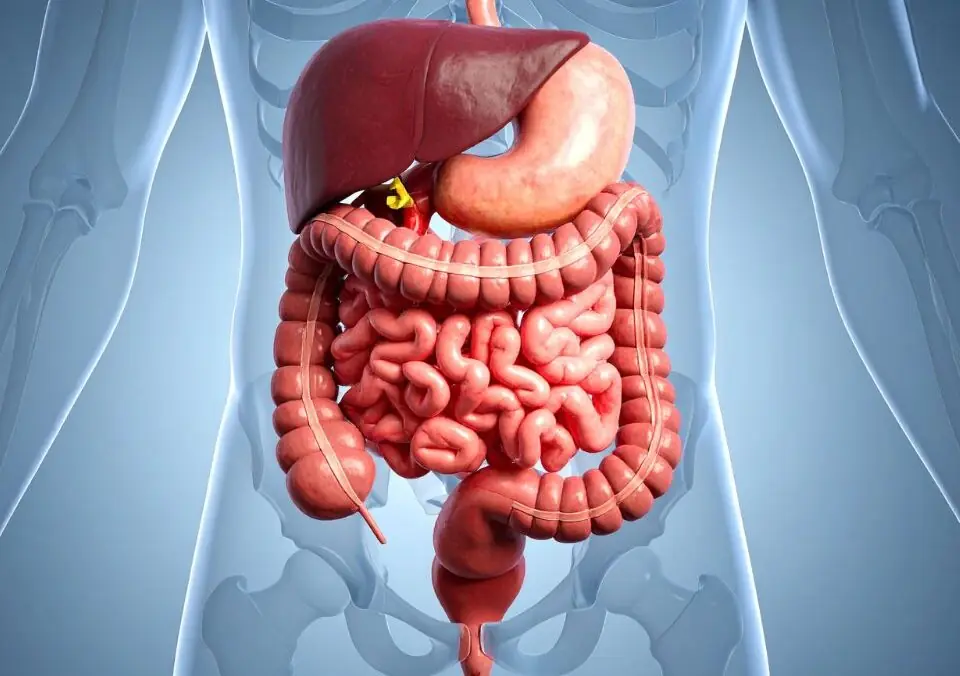Blog
Dietary Choices Impact Gut Health

We all know the phrase: “Garbage in, garbage out.” This saying captures a profound truth about not only our food choices but also their impact on our overall health. In the age of convenience and fast food, this concept is particularly relevant. If we indulge in junk food and consume it excessively, we should not be surprised when our health begins to decline. Conversely, if we aim to live long and healthy lives, we must prioritize good, nutritious foods in our diets. Ultimately, the responsibility for our health lies with us, and the choices we make daily influence our well-being.
Understanding Gut Health
According to the Cleveland Clinic, our gut is one of the critical players in determining our health. It plays a vital role in many bodily functions, including digestion, immune response, and even mental health. The gut microbiome—which comprises trillions of microorganisms, including bacteria, viruses, fungi, and other microbes residing in our intestines—helps break down food, absorb nutrients, and protect against harmful pathogens. Maintaining a healthy gut microbiome is essential for our physical and mental well-being Cleveland Clinic.
The composition of our microbiome can be influenced significantly by our dietary choices. Researchers have found that a healthy gut microbiome is diverse and balanced, which can be achieved by consuming a varied diet rich in fruits, vegetables, whole grains, and lean proteins. However, an unhealthy diet can disrupt this balance, leading to an overgrowth of harmful bacteria and negative health outcomes.
The Role of Diet in Gut Health
What we eat plays a crucial role in determining our gut health. Specifically, it noted that consuming high amounts of fats, fiber, cholesterol, emulsifiers, sodium, and simple carbohydrates can negatively affect your gut microbiome. Unfortunately, the typical Western diet, characterized by high levels of saturated fat, sugar, sodium, and simple carbohydrates, is often detrimental to gut health.
Research has shown that diets high in processed foods can lead to inflammation and a decrease in microbiome diversity, which can predispose individuals to various health problems, including obesity, diabetes, heart disease, and even mental health disorders.

The Impact of Processed Foods
Processed foods are typically laden with unhealthy fats, sugars, and additives that can harm our gut. For instance, a study published in Nature found that a diet high in ultra-processed foods is linked to an increased risk of obesity and associated metabolic disorders. These foods can contribute to an imbalance in gut bacteria, leading to a condition known as dysbiosis, which can manifest as digestive issues, fatigue, and immune dysfunction.
Foods high in added sugars (like soda and candy) can also feed harmful bacteria in the gut, promoting an unhealthy microbial environment. In contrast, dietary fiber from fruits, vegetables, and whole grains feeds beneficial bacteria, helping them thrive and maintain a healthy gut balance.
Benefits of a Healthy Diet for Gut Health
Transforming your diet to support gut health can have profound benefits not only for digestion but for overall health. A healthy gut microbiome can enhance nutrient absorption, boost the immune system, and even play a role in mental health. Studies have shown that a healthy gut microbiome is linked to lower rates of anxiety and depression, suggesting that gut health directly impacts mental well-being.
Increasing Fiber Intake
One of the most effective ways to improve gut health is by increasing dietary fiber intake. Fiber, found abundantly in fruits, vegetables, whole grains, and legumes, acts as a prebiotic, providing nourishment for beneficial gut bacteria. Research suggests that diets high in fiber can lead to greater diversity in the microbiome, which is associated with better health outcomes.
Incorporating various fiber-rich foods such as oats, beans, berries, and leafy greens into your diet can create an environment where beneficial bacteria thrive. Consider starting your day with a bowl of oatmeal topped with fresh fruits or adding a side of steamed broccoli to your meals.
Fermented Foods
Fermented foods are another excellent option for supporting gut health. They naturally contain probiotics—live microorganisms that provide various health benefits. Foods like yogurt, kefir, sauerkraut, kimchi, and miso are rich in beneficial bacteria that can enhance gut health. Incorporating these foods into your diet can help replenish friendly gut bacteria, improve digestion, and may even strengthen the immune system.
Practical Steps to Improve Your Diet
Improving your gut health doesn’t require a complete dietary overhaul. Here are some practical steps you can take to start making healthier choices:
- Cut Back on Processed Foods: Try to limit your intake of processed foods high in sugars, unhealthy fats, and preservatives. Instead, focus on whole, nutrient-dense foods.
- Incorporate More Fruits and Vegetables: Aim to fill half your plate with fruits and vegetables. Different colors often indicate a variety of nutrients. The broader the range of colors, the better for your gut and overall health.
- Choose Whole Grains: Replace refined grains with whole grains. Opt for whole-grain bread, brown rice, quinoa, and oats. These foods are high in fiber and beneficial nutrients.
- Stay Hydrated: Drinking plenty of water is essential for digestion and helps maintain a healthy gut. It aids the process of breaking down food and nutrient absorption.
- Experiment with Fermented Foods: Introduce a variety of fermented foods into your diet. You can start small with yogurt or kefir and gradually add in others as you adjust to the flavors.
- Limit Sugar and High-Sodium Foods: Reducing your intake of sugary drinks and snacks can significantly improve gut health. Similarly, high-sodium processed foods can disrupt the gut’s balance, so aim for fresh ingredients always when possible.
- Mindful Eating: Pay attention to your eating habits. Eating mindfully can help you better recognize your body’s hunger and fullness cues, leading to a more balanced diet.
The Importance of Balanced Nutrition
While focusing on gut health, it’s equally important to ensure that your overall nutrition is balanced. A diet lacking in essential nutrients can lead to deficiencies that may adversely affect your health. For example, a deficiency in vitamin D has been linked to an unhealthy gut microbiome. Therefore, ensure you are getting adequate vitamins and minerals through a varied diet or consider supplements if necessary.
The Connection Between Gut Health and Mental Well-being
Emerging research is beginning to uncover the fascinating link between gut health and mental well-being. The gut and the brain communicate through the gut-brain axis, which involves various pathways, including hormonal signaling and nerve pathways. The gut microbiome produces neurotransmitters and metabolites that can affect mood and cognitive function.
Studies have found that certain probiotics can help alleviate symptoms of anxiety and depression. For instance, Lactobacillus and Bifidobacterium species have been shown to have positive effects on mental health. This connection underscores the importance of maintaining a healthy gut through dietary choices to promote mental well-being.
Conclusion
In conclusion, the choices you make regarding your diet significantly impact your gut health and, ultimately, your overall well-being. Emphasizing a diet rich in whole foods, fiber, and fermented products can work wonders for your gut microbiome. By steering away from processed foods and incorporating more nutritious options, you can enhance your gut health, improve digestion, strengthen your immune system, and contribute to better mental health.
While it may seem daunting to change eating habits, remember that small, incremental changes add up over time. Consulting with a healthcare professional or registered dietitian can provide personalized guidance tailored to your needs and help you establish a balanced diet that supports not only your gut health but your overall health as well. For ongoing support and tips on healthy eating, consider exploring resources like the Fill Your Plate blog for more information and practical advice.
By taking charge of your dietary choices, you can pave the way for a healthier, happier life. Remember, after all, you are what you eat! Your gut will thank you.
By Heide Kennedy, Arizona Farm Bureau Communications Intern


















